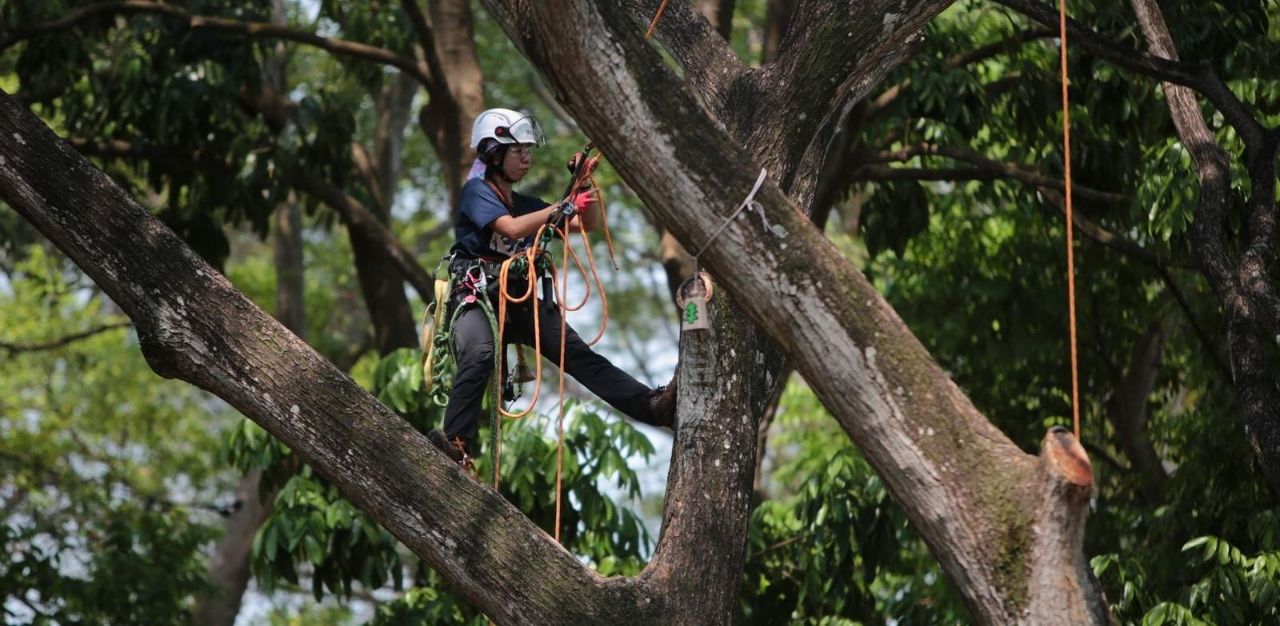Kuah Siew Choo’s career as a flavourist began with her love for food.
“I’ve always had a passion for food and enjoy food in general,” she reveals. This prompted her to apply for a role as a laboratory technician at a flavour house, after graduating with a diploma in food science in the mid-80s.
After 17 years at another flavour company, she joined Givaudan, a global company specialising in taste and well-being, fragrance and beauty, where she is currently a Principal Flavourist, with almost 30 years of experience in this field.
Taste testing products is just part of the job for flavourists, says Ms Kuah: “We conduct taste tests every day, on products like ice cream, biscuits, [and] all kinds of beverages.”
She adds that part of a flavourist’s job is to understand its customer better, and to translate what they want into a winning product.
“We have to really listen to what they say, [like] ‘My coffee, I want it to be more roasted. I want this grain note.’ You have to search through your ‘library’ [to] know what to give them.”
Flavourists at Givaudan also have the opportunity to embark on gastronomic adventures through discovery treks. Under this programme, flavourists explore new ingredients and flavour ideas for customers by visiting unique local and overseas locations.
“Over the years, we have done tea treks, coffee treks, citrus treks, even culinary treks,” Ms Kuah explains, and talks about a recent tea trek in China.
“A group of flavourists, scientists, and food technologists spent days in the tea plantations, starting from [the] harvesting to processing of tea leaves,” she shares. “[They] spent a day with the tea masters and the brewing techniques and enjoyed some of the very best tea in China. And we translate that into flavours.”
She says that this career path is very niche, estimating that there are less than 20 flavour and fragrance companies in Singapore. To embark on this career path within Givaudan, aspiring flavourists must first obtain a prior degree in food science or chemistry. They can then apply to individual schools in Givaudan, each of which have their own specific methods of training and preferred ingredients.
“Trainee flavourists at Givaudan are exposed to a large range of raw materials. They need to know about flavour science, analytical chemistry, and also need to expose themselves to sensory science studies,” she says, adding that Givaudan has a standardised global curriculum that spans across its schools in North America, Europe and Asia.
Ms Kuah shares that Givaudan’s Taste and Wellbeing Flavour school has trained close to 10 trainee flavourists across the Asia Pacific region.
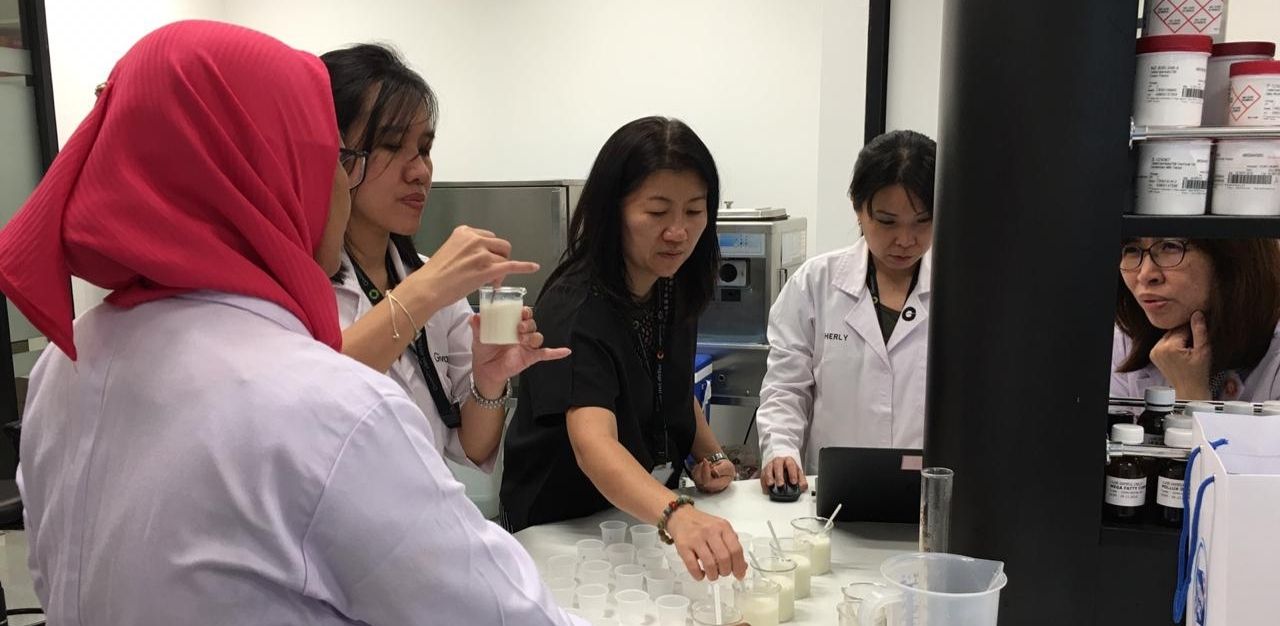
While a passion for food was what drew Ms Kuah to a career as a flavourist, it was his love for nature that compelled Martin Tay to explore the world of arboriculture. After studying Information Technology (IT), he decided to enter the landscaping industry in 2004, influenced by his father, who was working in the same sector.
But he soon realised that he wanted to specialise in the field of arboriculture, which involves the cultivation, study and management of trees and plants.
He is quick to clarify that his role is “really not just [about] looking at trees.”
A day at work for Mr Tay can span many different tasks; from fieldwork, a process involving the gathering of information from natural environments, to generating quotations. As the Principle Consultant/ Director at ArborCulture Pte Ltd, an arboricultural consulting firm in Singapore, he manages a group of arborists, and estimates that fieldwork constitutes about 50 per cent of his role, with the other half requiring him to be deskbound.
Here, his prior experience with IT has come in handy, as the assessment of trees, a key part of his work, often requires the use of technology, through tests such as sonic testing and resistance drilling.
“In Singapore’s context, you have a lot of development, and also a lot of tree conservation surrounding this development,” he says. “So it actually kind of [involves] applying what I have learned in IT, putting [those skills] into use for this industry.”
While the local arboriculture scene has grown in recent years, Mr Tay explains that most arborists tend to work in the public sector, including National Parks Board (NParks) and National Environment Agency. He also estimates that there are not more than 10 arboriculture consultancy firms in Singapore.
Aspiring arborists will first have to obtain certification from the International Society of Arboriculture (ISA), and will require a degree in arboriculture or related fields, as well as relevant industry experience, to qualify. Mr Tay shares that a preparatory programme for ISA certification is also available via the Centre for Urban Greenery and Ecology (CUGE), a subdivision of NParks.
He explains that there are two career tracks for arboriculture: being a practising arborist or a consultant arborist. While practising arborists tend to be involved in tree works, which includes the picking up of debris, pruning and transplanting of trees, consultant arborists adopt a strategic role that involves the study of trees.
“In Singapore, we have more consulting arborists than practising arborists. Lots of tree works, like pruning [and] tree removal are often helmed by our workers that come from overseas,” explains Mr Tay. “It’s always best to start from a practising arborist to become a consultant arborist.”
His career in arboriculture has led him to participate in key projects locally and overseas.
“I get to travel to different countries. You can see [how] different [the] arboriculture industry in Singapore [is] compared to other countries. It’s a close community in general, in terms of international arborists,” he says.
Aiding in the process of tree conservation for University Town at National University of Singapore was one such opportunity, as the site was originally slated to be the location of the Youth Olympic Village for the 2008 Summer Youth Olympic Games. It was Mr Tay’s first major project.
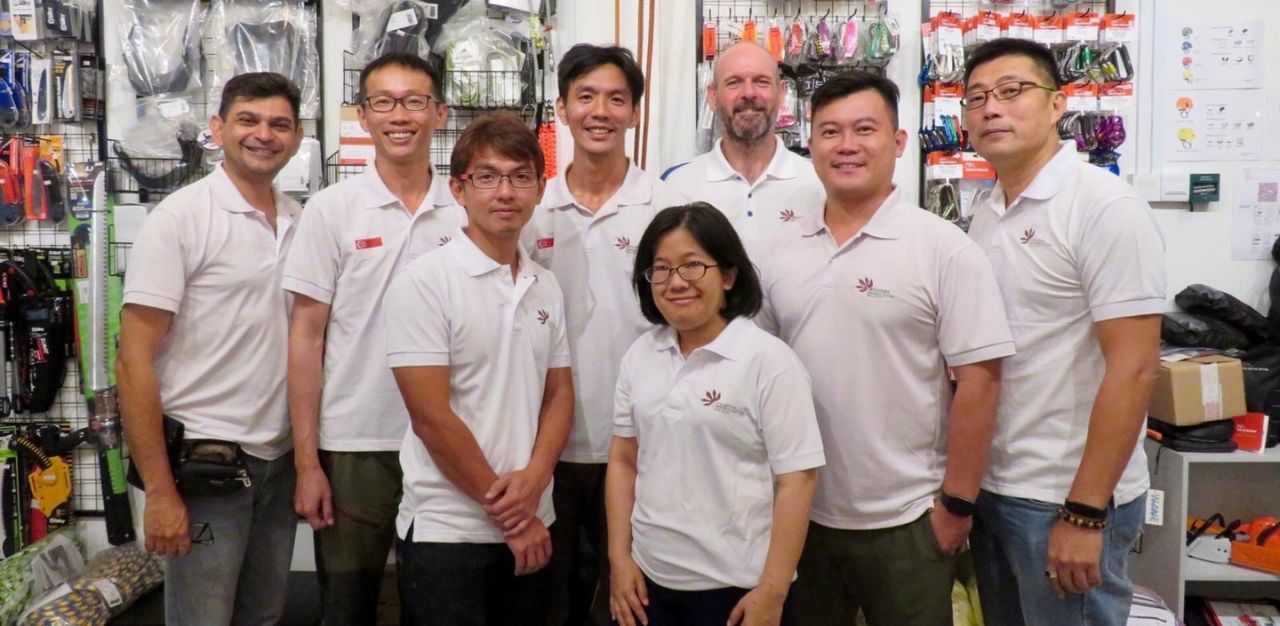
Cyber security could be another unique career choice in Singapore – particularly for firms that offer services pertaining to technical surveillance counter measures (TSCM). This involves measures to detect technologies that access and attain unauthorised information.
While cyber security firms are not uncommon in Singapore, not many are well-equipped to handle the task of TSCM, says David C. Rule, estimating that two or three firms in Singapore have adequate skills to provide this service.
As a partner at cyber security firm Xione Group, his expertise spans various areas of cyber security, including the collection and preservation of data, TSCM, and forensic analysis and investigation. Having been in the cyber security field since 1993, he explains that the amount of time required to complete tasks is often underestimated by clients, which he attributes to the influence of movies.
“A lot of people watch too much TV… They’re expecting the job done in 40 minutes with a 20-minute Q & A at the end of it,” he says. “It doesn’t happen like it does in the movies; the Hollywood side of things doesn’t exist.”
He cites the example of copying a handheld electronic device, which can take up to a day to image properly due to the speed and amount of memory involved, contrary to popular opinion that it can be “done in 20 minutes”.
Finding staff with suitable skills and knowledge to conduct sweeps, which refers to the process of detecting the presence of eavesdropping devices, is also vital to the service of TSCM, posits Mr Rule.
He shares that many cyber security specialists, who are well versed in TSCM, tend to have prior experience with counter surveillance services, be it through former stints in government service, or otherwise.
Mr Rule explains that sweeps involve both physical and technical aspects.
“A technical sweep needs to cover a large frequency gap for different devices and their operation, [which] has to be combined with an in-depth physical [sweep] for devices that have been installed and hard-wired,” he elaborates. “Throw in the possible use of government-style equipment that doesn’t need to be in the same room, and it gets complex.
“It takes experience to understand both sides of the coin, how to be the gamekeeper after being a poacher,” he says, referring to cyber security specialists who have had experience with surveillance equipment for both unethical and ethical purposes. These include cyber criminals who have “grown a conscience” and decided to use their skills for more ethical causes.
Mr Rule believes that this experience is essential to foresee and detect potential cyber security issues and loopholes: “You’ve got to have been on the other side of the fence first, so you can plug those holes in the fence.”
He also cautions against firms that claim to find no devices.
“If you’ve got somebody coming around with a magic wand and saying everything’s good, it’s not good,” he says. “We often refer to that as a ‘Harry Potter’. So he comes around with a magic wand [and says] everything’s fine, great.”
Mr Rule shares that cyber crime is on the rise, with bugging devices being found in four out of 10 sweeps that his team conducts. Since the beginning of the pandemic, he has also found that white collar crimes are at a high, with cyber crime constituting 43 per cent of overall crime in Singapore, last year.
“We deal with white collar crime. That could be the disgruntled employee, the unfair competitor next door, or even a government issue, where they’re spying,” he says. “The second oldest industry in the world is spying or eavesdropping… Everybody would like to know what’s going on in somebody else’s office or home, sadly.”
Office premises and homes are just some of the locations where sweeps are commonly conducted.
“We go into office premises [and] homes and check for any spying devices. That can be something attached to your security network, your IT network, your laptop, your handheld device, or it could be old style, where somebody has got audio and video from across the road [and is] watching you,” he says.
Essential qualities for success
“A flavourist must be able to smell and taste very well,” says Ms Kuah. “If you can’t, you can’t differentiate the different degree of [things like] fruits’ ripeness.”
Deep passion and a love for food are also important: “We have to love food, and [be] curious about food, the origin of food, as they relate to different cultures and consumption habits of individual countries.”
Ms Kuah adds that business acumen is also important for flavourists, as this aids the process of product development for customers.
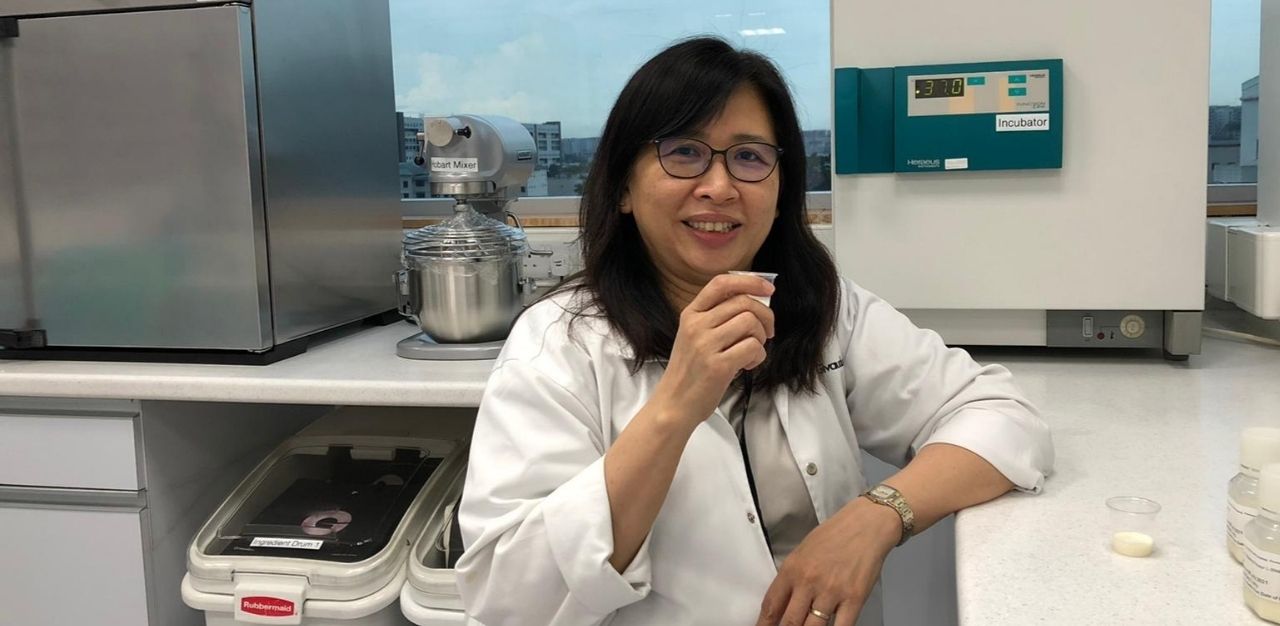
Patience and attention to detail are two qualities that are vital to excelling in the field of cyber security, opines Mr Rule.
“First of all, in realising it’s not a movie – it takes time to do some of the searches and technical sweeps that we do. Somebody who is detailed, can walk around a room, a boat, a plane, take things apart and don’t break them. Somebody who’s detailed, analytical, and can follow a system,” he says.
Passion, integrity, and a willingness to learn are three key qualities for arborists, asserts Mr Tay, along with a love for going outdoors: “You have to like [the] outdoor environment to become a good arborist… That’s where you slowly pick up [skills].”
Challenges faced
The field of cyber security comes with its fair share of challenges, adds Mr Rule – one of them being staff retention.
“We’re a subcontractor to a lot of other firms… Some of our colleagues come here, stay with me for a year or so, and then move on to another big corporation, where they’re getting a different salary range and bracket,” he explains. “I’m working on how to incentivise people to stay with us a little bit longer.”
Managing clients’ expectations is another.
“The client expects us to be an expert in all different areas [of technology], just because we say we’re experts in a forensic investigation environment,” he says. “But it doesn’t mean to say I know about the latest and greatest operating system that you’ve just downloaded. [That takes] research and time.”
For Ms Kuah, staying ahead of food trends is key to adapting one’s skills to come up with new solutions that fit the needs of clients. She cites the example of plant-based food, which has become increasingly popular in recent years.
“Nowadays, you see plant-based beverages and plant-based meat is gaining traction… Plant protein can sometimes be very rough, fibrous. So [we have to know] how to mask some of the off notes, how to make it taste smooth and creamy, or easy to drink for consumers,” she says. “Plant-based meats can be dry, so our so-called challenge is to make it taste juicier.”
Creating flavours that are suitable for multiple countries can also be a complex process, she says.
“To create a flavour that is suitable for 15 to 20 countries will require coordination with various divisions, before a flavour can be submitted to our customers, as different countries have their own food regulations,” she elaborates.
Similarly, manpower is one of the challenges faced by the arboriculture sector in Singapore. Mr Tay explains that finding good arborist interns can be a difficult task.
“It’s really hard to find a good arborist intern in Singapore, because you really need to practise arboriculture work, to even do consulting. A lot of them actually do not have practising knowledge,” he says.
“For our industry, it’s not just the certification, [but] more of your experience and incorporating the knowledge of what you have learned through your experience to actually make it applicable.”
Having a large part of the fieldwork being completed by overseas workers, as opposed to trained arborists, can also be a challenge, as these workers may not have the same level of knowledge pertaining to tree care, says Mr Tay. “You can teach them and guide them along, but they have limited knowledge in terms of proper tree care.”
Limited land space also presents its difficulties for the arboriculture industry. “Singapore is small, [and] land is expensive,” explains Mr Tay.
“That’s where the challenge comes in, in trying to conserve as many trees in our limited land size.”
Finding fulfilment in their careers
Ultimately, the constant exposure to new knowledge about the methods that fraudsters develop to “hack or break into a network, or spy on somebody”, is what drives Mr Rule’s passion for his role.
“I’m intrigued by the creativeness of the fraudsters that are around us, in the ways they’re siphoning information, data. Ultimately, their goal is to turn something into money or Crypto currency and sell that information,” he shares.
“So that motivates me – how are these people doing this, attempting to hack or break into a network, or to ultimately spy on somebody?”
Solving his clients’ problems is also a source of deep satisfaction for him: “Explaining the real problem to a client, and them understanding it, is my big takeaway.”
“It’s never a dull moment!” he laughs. “Our work and our referrals are probably the best part of walking away from a job… I’m happy when the client’s happy, and they realise there’s more to the project than they’ve been told.”
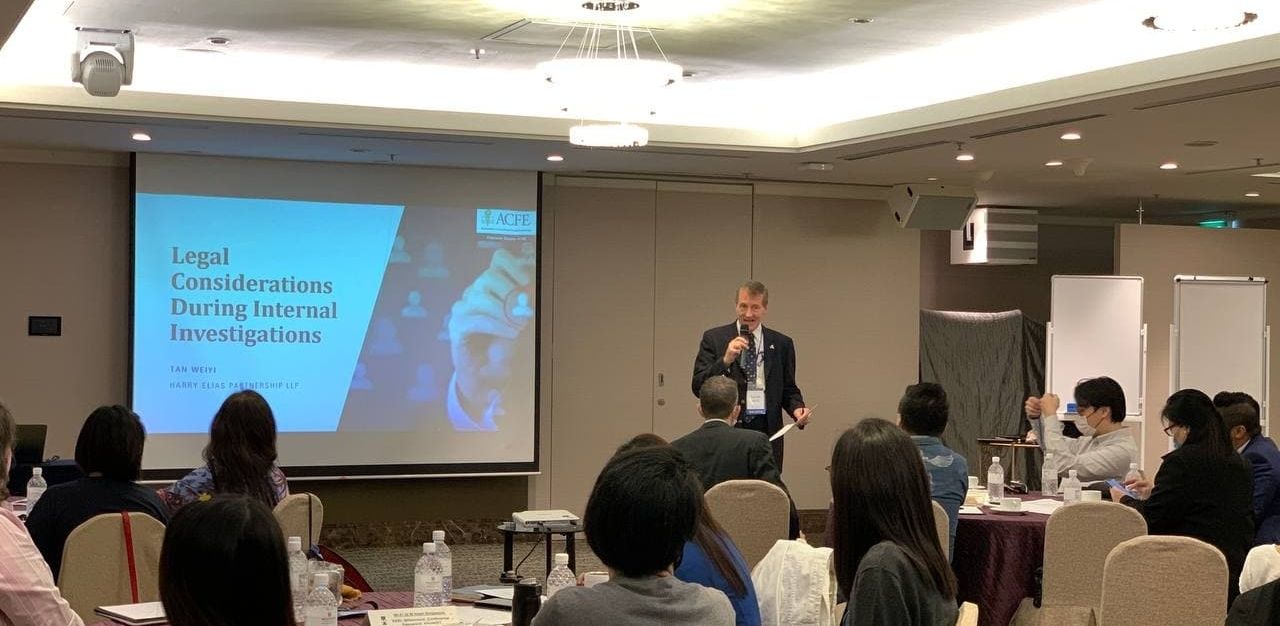
Growing with her customers and seeing the flavours she has helped to develop being used in products gives Ms Kuah’s great joy.
“I’m able to work closely with our customers, from the generation of concepts to developing flavours for them, and conducting sensory studies with them. So I also grew with my customer.. It’s very fulfilling for me,” she shares.
Creativity and the chance to constantly gain new knowledge are other aspects of her job that she enjoys.
“I’m able to exercise my creativity and also keep learning. This is important, because flavour trends [are] always evolving,” she explains. “We really have to keep up with technology. This keeps us moving.”
She also enjoys the opportunity to collaborate with flavourists globally and recalls attending an exchange programme with flavourists from Japan who came to Singapore: “They said ‘We want to know more about bubble tea’… So we actually hired a car and brought them to different bubble tea shops to experience different flavours,” she recalls.
Annual tree climbing competitions are some of the highlights of arboriculture, says Mr Tay.
“We have a tree climbing competition every year… To teach people how to actually climb trees safely, and also [share more about] the technology that has been updated, such that they don’t use any equipment to climb the tree,” he says.
Mr Tay adds that these competitions are indicative of the close-knitted and generous nature of the arboriculture industry, which is very special: “In order to bring up our industry, we need to share. We are not afraid to share as much as possible [with] our fellow arborist colleagues, to try to improve our industry,” he says. “I will say it’s not a common practice [among] other industries.”
For those who wish to enter the industry, Mr Rule recommends that they take up internships or opportunities to volunteer at cyber security firms.
“Go work as an intern, or volunteer your time with a firm that can share information [about] what’s actually going on in the real world – the scams, the fraudsters,” he says.
And for aspiring flavourists? “Join us!” quips Ms Kuah. “I think we provide very good training… We are constantly looking for ‘new blood’ to continue this business.”
Join the conversations on TheHomeGround Asia’s Facebook and Instagram, and get the latest updates via Telegram.
